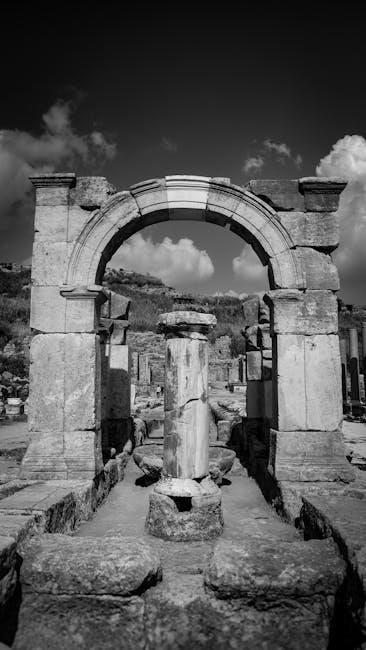The concept of the “clash of civilizations” explores cultural and ideological conflicts shaping global politics. It emphasizes civilization as a broad cultural entity, influencing historical and modern tensions.
1.1 Definition of Civilization
A civilization is a broad cultural entity defined by shared history, values, and institutions. It encompasses groups like villages, regions, ethnicities, and religions, forming a collective identity. Civilizations are shaped by common cultural traits, such as language, religion, and social norms, which distinguish them from others. This concept is central to understanding global conflicts, as civilizations often clash over differing values and interests.
1.2 Historical Context of Civilizational Conflicts
Civilizational conflicts have deep historical roots, often arising from competing values, religions, and cultural identities. The Crusades exemplify early clashes between Western and Islamic civilizations, while colonialism later intensified tensions between the West and other cultures. The Cold War further highlighted ideological divides, setting the stage for modern conflicts. Understanding this historical context is crucial for grasping how civilizational differences have shaped global politics and continue to influence contemporary tensions.
1.3 Relevance of the Concept in Modern Global Politics
The “clash of civilizations” remains a pivotal framework for understanding modern global tensions. Current conflicts, such as the Arab-Israeli dispute and Russia-Ukraine crisis, reflect deeper civilizational divides. Huntington’s theory highlights how cultural and religious identities shape international relations, offering insights into power struggles and ideological clashes. As globalization intensifies, these divisions often escalate, making the concept a critical lens for analyzing contemporary geopolitics and the challenges of cultural coexistence in a multi-polar world.
The Original Hypothesis by Samuel Huntington
Samuel Huntington’s hypothesis posits that cultural and religious identities shape global conflicts, replacing ideological divides post-Cold War. His work sparks debate on civilizational dynamics and modern geopolitics.
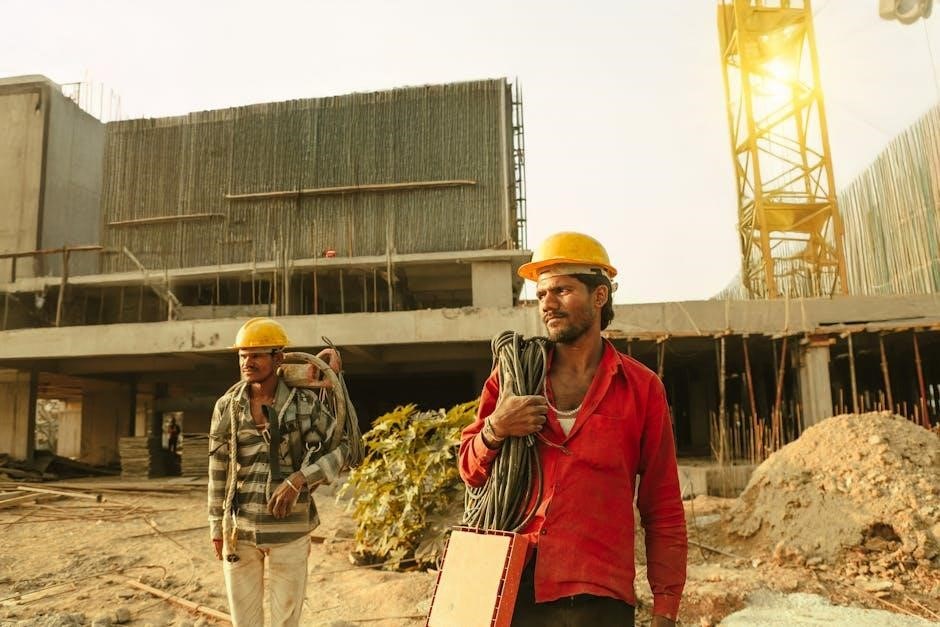
2.1 Overview of Huntington’s 1993 Essay
Huntington’s 1993 essay introduced the clash of civilizations theory, suggesting cultural divides would dominate post-Cold War conflicts. He argued that future wars would arise from cultural and religious differences rather than ideological or economic disputes. This provocative idea challenged traditional views of international relations and sparked widespread debate among scholars and policymakers. The essay laid the groundwork for his later book, reshaping discussions on global politics and civilizational identity.
2.2 Expansion into the Book “The Clash of Civilizations and the Remaking of World Order”
Huntington expanded his 1993 essay into a comprehensive book, exploring civilizational identities and conflicts in depth. He identified major civilizations like Western, Islamic, and Sinic, analyzing their cultural and religious foundations. The book predicted increasing tensions between these groups, emphasizing the West’s potential decline and the rise of non-Western powers. It provided a detailed framework for understanding global politics through a civilizational lens, influencing both academic and political discourse worldwide.
2.3 Key Arguments and Predictions
Huntington argued that future conflicts would primarily occur between major civilizations, driven by cultural and religious differences. He predicted the rise of non-Western powers, particularly China and Islam, challenging Western dominance. Huntington emphasized the importance of civilizational identity and warned of escalating tensions, advocating for Understanding and cooperation to mitigate clashes. His predictions highlighted the potential for global instability, urging a nuanced approach to inter-civilizational relations in an increasingly fragmented world.
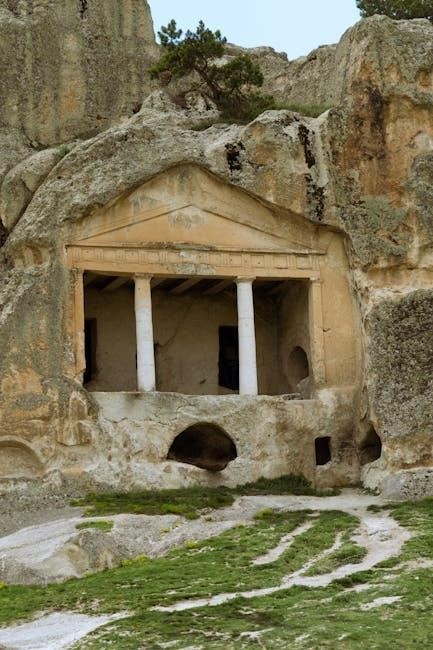
Core Concepts and Framework
Huntington’s framework defines civilizations as broad cultural entities, emphasizing religion, history, and values as key identifiers. He argues that these shared identities shape global conflicts and alliances, creating fault lines between civilizations.
3.1 The Idea of Cultural Entities
Huntington defines civilizations as broad cultural entities, unified by shared values, history, and traditions. These entities transcend nation-states, encompassing religions, languages, and customs. Cultural identity becomes the primary source of conflict, as civilizations with differing values clash. This concept emphasizes the role of collective memory and cultural norms in shaping global interactions. Huntington argues that understanding these cultural entities is crucial for analyzing modern conflicts, such as the historical Crusades and contemporary geopolitical tensions between the West and other civilizations.
3.2 The Role of Religion in Civilizational Identity
Religion plays a central role in shaping civilizational identity, as it provides moral frameworks and cultural cohesion. Huntington highlights how religious beliefs influence societal values and political structures. For instance, Islamic and Western civilizations are deeply rooted in their respective religious traditions, often leading to conflicting worldviews. This religious divide is a significant factor in modern conflicts, as seen in the Arab-Israeli conflict. Understanding the interplay of religion and culture is essential for grasping the dynamics of civilizational clashes. This aspect underscores the enduring impact of faith on global relations.
3.3 The West vs. the Rest: A Central Theme
Huntington’s theory emphasizes the West vs. the Rest as a central theme, where Western civilization, driven by democracy and capitalism, contrasts with other civilizations. This dichotomy is rooted in cultural and ideological differences, often leading to tensions. The West’s promotion of universal values is met with resistance from other civilizations, such as Islamic and Sinic, which assert their own identities. This theme highlights the struggle for global influence and the challenges of cultural coexistence in a multi-civilizational world.

Major Civilizations Identified by Huntington
Huntington identifies several major civilizations, including Western, Islamic, Sinic, and Hindu, each with distinct cultural, religious, and historical identities shaping global dynamics and conflicts.
4.1 Western Civilization
Western civilization is rooted in European culture, Christianity, and Enlightenment values. It emphasizes democracy, individualism, and scientific progress. Huntington views it as a dominant global force, often in tension with other civilizations, particularly Islam and Sinic. The West’s promotion of universal values like human rights and liberal democracy often clashes with the particularism of non-Western cultures, leading to significant geopolitical and cultural conflicts.
4.2 Islamic Civilization
Islamic civilization is defined by its religious and cultural unity, centered on Islam. It spans diverse regions, from the Middle East to Southeast Asia. Huntington highlights its distinct values, such as communalism and divine law, contrasting with Western individualism. Historical conflicts, like the Crusades, and modern tensions, such as the Arab-Israeli conflict, illustrate enduring civilizational divides, fueling perceptions of an inevitable clash with the West.
4.3 Sinic (Chinese) Civilization
Sinic civilization, centered in China, is characterized by a shared cultural heritage, including Confucianism and a strong bureaucratic tradition. Its historical resilience and modern rise as a global power underscore its distinct identity. Huntington notes its potential to challenge Western dominance, emphasizing differences in values like collectivism versus individualism. The Sinic civilization’s growing influence highlights its role in shaping a multipolar world order, distinct from both Islamic and Western cultures.
4.4 Hindu, Slavic-Orthodox, and Other Civilizations
Hindu civilization is rooted in ancient philosophical traditions, emphasizing spirituality and the concept of dharma. Slavic-Orthodox civilization, centered in Russia and Eastern Europe, is shaped by Orthodox Christianity and a distinct cultural identity separate from the West. Other civilizations, such as African and Latin American, possess unique cultural and historical trajectories. These civilizations highlight the diversity of global cultural entities, each with its own values and historical experiences, contributing to the complex tapestry of international relations.
Historical and Modern Examples of Civilizational Clashes
Historical and modern conflicts highlight cultural and religious divides, shaping global tensions. From ancient empires to contemporary geopolitics, civilizational differences fuel ongoing struggles for power and identity.
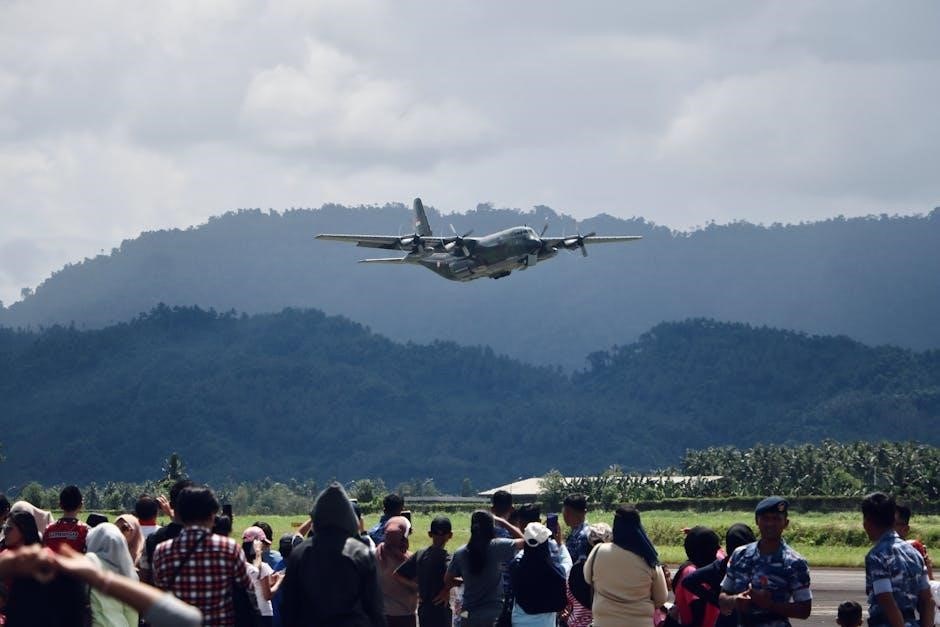
5.1 The Crusades as a Historical Clash
The Crusades were a pivotal historical clash between Christian and Islamic civilizations, marked by religious and cultural conflicts. These wars, spanning centuries, reflected deep ideological divides and competing territorial ambitions. The Crusades symbolized the broader struggle between the West and Islam, shaping enduring perceptions of civilizational differences. They remain a significant example of how religious identity has historically fueled large-scale conflicts, influencing modern interpretations of civilizational clashes.
5.2 The Cold War and Its Impact on Civilizational Divides
The Cold War deepened civilizational divides, pitting Western democracies against communist regimes. Ideological battles, proxy wars, and propaganda campaigns heightened tensions, framing global conflicts in civilizational terms; The clash extended beyond ideology, reinforcing cultural and political fault lines. While not strictly a religious conflict, it underscored differences between capitalist and communist systems, influencing perceptions of civilizational identity and fostering a bipolar world order that shaped modern geopolitical dynamics.
5.3 Modern Conflicts: The Arab-Israeli Conflict and the Ukraine-Russia Crisis
The Arab-Israeli conflict exemplifies civilizational tensions, blending religious, cultural, and territorial disputes. Similarly, the Ukraine-Russia crisis highlights divisions between Western-aligned and Russian-influenced identities. Both conflicts reflect deeper cultural and ideological rifts, underscoring Huntington’s thesis of civilizational clashes. These modern struggles illustrate how historical grievances and competing values continue to shape global instability, reinforcing the relevance of civilizational frameworks in understanding contemporary geopolitics and international relations.
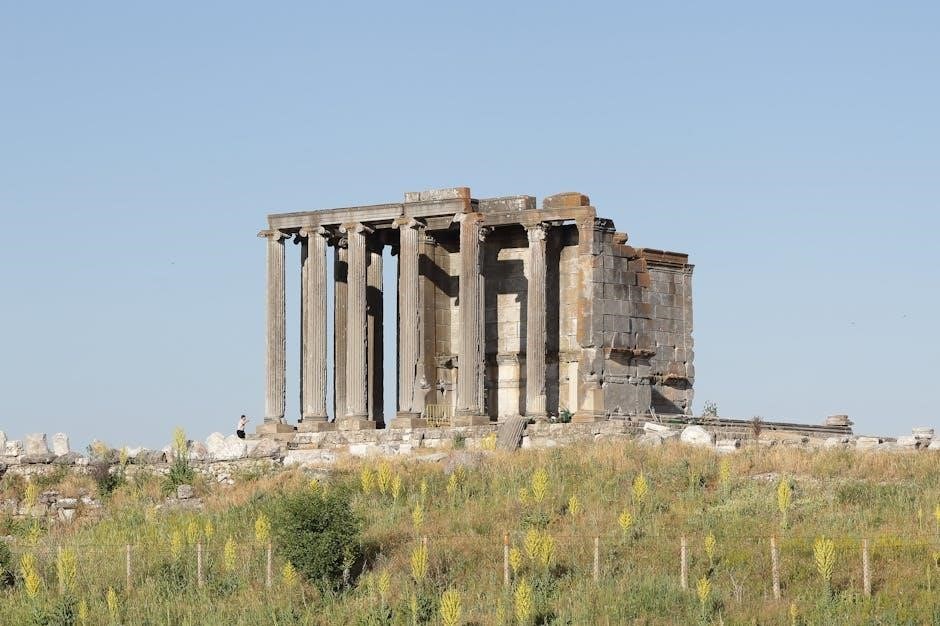
Criticisms and Controversies
Huntington’s theory has faced criticism for oversimplifying complex conflicts and reinforcing cultural stereotypes. Critics argue it promotes a self-fulfilling prophecy, ignoring internal diversity within civilizations.
6.1 Accusations of Oversimplification
Huntington’s theory has been criticized for oversimplifying complex conflicts by attributing them to fixed civilizational identities. Critics argue that this approach overlooks internal diversity within civilizations and reduces intricate geopolitical dynamics to simplistic cultural explanations. Such reductionism, they claim, ignores the multifaceted nature of global conflicts, where economic, political, and social factors often play equal or greater roles than cultural differences. This oversimplification has been accused of fueling stereotypes and misguiding policy-making, making it a contentious aspect of his framework.
6.2 Critique of Cultural Determinism
Critics argue that Huntington’s theory relies heavily on cultural determinism, suggesting that cultural identity is the primary driver of conflict. This perspective is seen as overly deterministic, as it minimizes the influence of economic, political, and social factors. By framing conflicts as inevitable clashes between immutable cultural entities, the theory risks oversimplifying the complexities of human societies and international relations, potentially leading to policies that reinforce divisions rather than fostering understanding and cooperation. This critique underscores the need for a more nuanced approach to global conflicts.
6.3 The “Clash of Civilizations” as a Self-Fulfilling Prophecy
Huntington’s theory has been criticized for acting as a self-fulfilling prophecy. By framing global conflicts as inevitable civilizational clashes, the idea may inadvertently create the very divisions it describes. Leaders and media often cite the theory to justify antagonistic policies or rhetoric, reinforcing perceptions of irreconcilable differences. This cycle of expectation and reaction can escalate tensions, making inter-civilizational dialogue more challenging and contributing to the realization of the prophecy itself.

The Role of Globalization and Modernization
Globalization and modernization intensify civilizational tensions by challenging traditional values and cultural identities, fostering divisions between societies adhering to modern norms and those preserving ancient traditions.
7.1 How Globalization Exacerbates Civilizational Tensions
Globalization heightens civilizational tensions by fostering cultural homogenization and economic disparities. As Western norms dominate global markets, traditional societies resist, leading to conflicts over values and identity. This clash is evident in debates over human rights, democracy, and religious freedom. The integration of global systems often marginalizes non-Western cultures, fueling resentment and reinforcing civilizational divides. Consequently, globalization accelerates the polarization of cultural identities, making inter-civilizational dialogue increasingly challenging. This dynamic underscores the clash of civilizations in a interconnected world.
7.2 The Impact of Modernization on Traditional Values
Modernization often erodes traditional values by promoting secularism and individualism over communal and religious identities. This shift can alienate communities tied to their cultural heritage, fostering resistance to change. In many non-Western societies, modernization is perceived as a threat, leading to cultural backlash and civilizational conflict. The tension between progress and preservation highlights how modernization can deepen divides, as societies struggle to balance development with the maintenance of their unique cultural identities in a rapidly changing world.
7.3 The Rise of Populism and Nationalism
The rise of populism and nationalism reflects a backlash against globalization and cultural homogenization. These movements often emphasize the preservation of distinct civilizational identities, fostering “us vs. them” mentalities. Populist leaders frequently exploit fears of cultural erosion, appealing to traditional values and sovereignty. This resurgence undermines global cooperation, deepening civilizational divides and intensifying conflicts. Nationalism, in particular, strengthens territorial and cultural boundaries, making compromise across civilizations increasingly challenging in a fragmented world order.
The Future of Civilizational Relations
The future of civilizational relations hinges on balancing unity and diversity, addressing global challenges collectively while respecting cultural identities. This path requires dialogue, understanding, and cooperation to prevent escalating conflicts and foster a harmonious multi-civilizational world order.
8.1 Potential for Dialogue and Cooperation
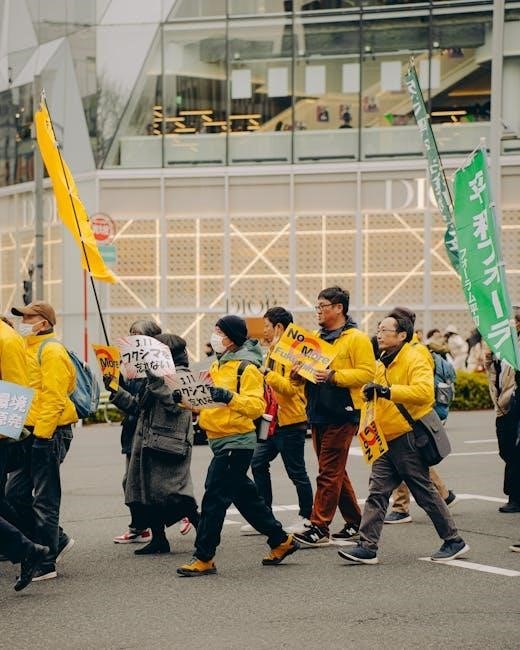
Dialogue and cooperation are essential for bridging civilizational divides. By fostering mutual understanding and respect, nations can address shared challenges like climate change and economic inequality. Cultural exchanges, diplomatic efforts, and multilateral institutions play a crucial role in promoting collaboration. Encouraging education and people-to-people connections can further reduce misunderstandings and build trust. A commitment to open communication and empathy is vital for creating a framework where diverse civilizations thrive together.
8.2 The Role of Multiculturalism and Integration
Multiculturalism and integration are key to harmonizing diverse civilizations. By embracing cultural diversity, societies can foster tolerance and unity. Integration policies that respect differences while promoting shared values help build inclusive communities. Education systems that teach about various cultures and histories encourage empathy and mutual respect. Multiculturalism also enriches societies economically and socially, creating a vibrant tapestry of traditions and ideas. Effective integration strategies are essential for maintaining social cohesion in an increasingly interconnected world.
8.3 The Threat of Escalating Conflicts
The clash of civilizations poses a significant threat of escalating conflicts, fueled by cultural and religious divides. Historical tensions, such as the Crusades and modern disputes like the Arab-Israeli conflict, highlight the depth of these divisions. Misunderstandings and competing interests can escalate into full-blown wars. Globalization intensifies these risks by bringing civilizations into closer, often volatile contact. Without dialogue and cooperation, these conflicts may spiral, threatening global stability and peace. Addressing these challenges requires mutual understanding and diplomacy to prevent further polarization.
The clash of civilizations remains a pivotal framework for understanding global conflicts, highlighting cultural and ideological divides. While criticized for oversimplification, Huntington’s theory underscores the importance of addressing civilizational differences through dialogue and cooperation to foster a more integrated world.
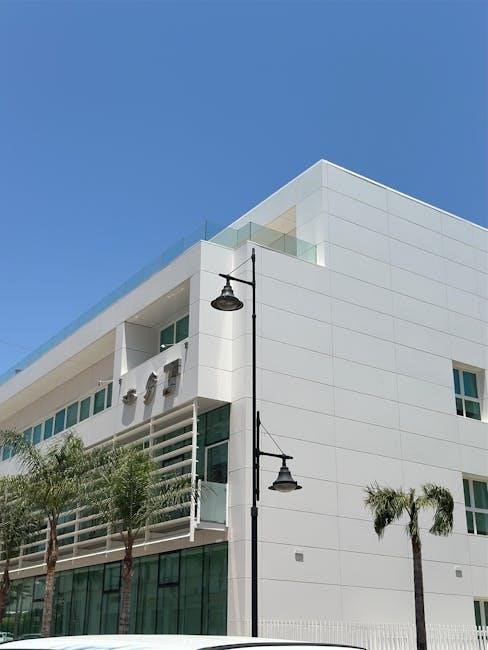
9.1 The Legacy of Huntington’s Theory
Huntington’s theory has left a lasting impact on global political discourse, shaping discussions on cultural and religious divides. Despite criticism for oversimplification, his work remains a foundational reference in understanding civilizational conflicts. The “clash of civilizations” concept continues to influence both academic and policy debates, prompting reflections on identity, values, and international relations in a multi-civilizational world.
9.2 The Need for a Nuanced Understanding of Civilizations
A nuanced understanding of civilizations recognizes their internal diversity and complexity. While Huntington’s theory highlights broad cultural divides, it risks oversimplifying the rich tapestry of traditions, values, and identities within each civilization. Globalization and modernization have blurred these boundaries, creating opportunities for dialogue and cooperation. A deeper appreciation for these nuances is essential to fostering mutual understanding and preventing conflicts rooted in misperceptions or stereotypes.
9.3 The Path Forward in a Multi-Civilizational World
Navigating a multi-civilizational world requires fostering dialogue, cooperation, and mutual respect. By understanding shared values and addressing misunderstandings, civilizations can build bridges. Education, diplomacy, and cultural exchange are vital tools to promote harmony and reduce tensions. Embracing diversity while addressing conflicts constructively ensures a more peaceful and integrated global community, where collaboration supersedes division.
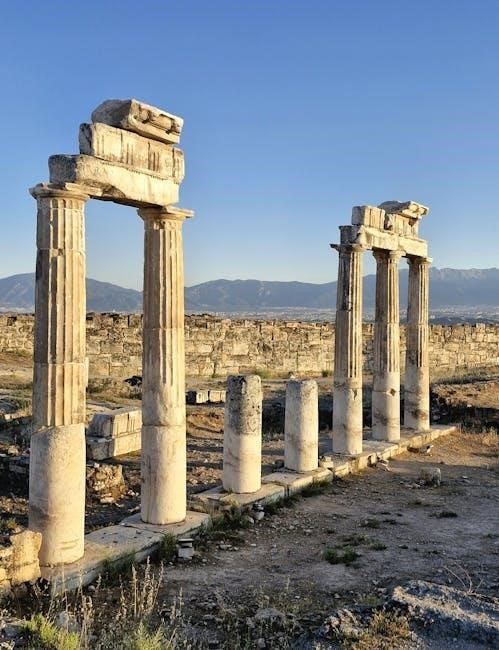
References and Further Reading
Key sources include Huntington’s original essay and book, critiques by scholars, and analyses of cultural conflicts. These resources provide in-depth insights and diverse perspectives on the topic.
10.1 Key Academic Sources
Essential academic sources include Samuel Huntington’s seminal work, “The Clash of Civilizations and the Remaking of World Order,” and his original 1993 essay in Foreign Affairs. Additionally, critiques by scholars like Edward Said and Fareed Zakaria offer contrasting perspectives. These works provide foundational insights into the theory and its implications, making them indispensable for understanding the concept’s evolution and critique. They are widely referenced in academic discussions on cultural and political conflicts.
10.2 Primary Texts by Huntington
Samuel Huntington’s primary texts are essential for understanding his theory. His 1993 essay in Foreign Affairs, “The Clash of Civilizations?,” introduced the concept, exploring cultural divides and future conflicts. His book, The Clash of Civilizations and the Remaking of World Order (1996), expanded on this idea, detailing civilizational identities and their role in global politics. These works remain foundational for analyzing cultural and political dynamics, offering insights into Huntington’s framework and its implications for international relations.
10.3 Critiques and Alternative Perspectives
Critics argue Huntington’s theory oversimplifies cultural diversity and promotes rigid divisions. Scholars like Edward Said and Amartya Sen challenge its determinism, advocating for multiculturalism. Alternative perspectives emphasize cooperation and shared human values over civilizational clashes, offering nuanced views on globalization’s role in fostering dialogue rather than conflict.
